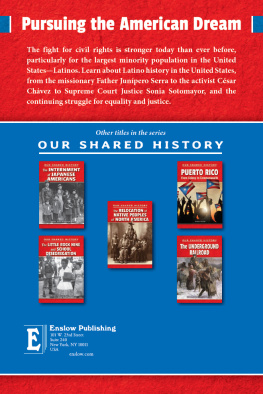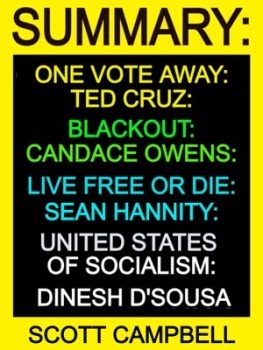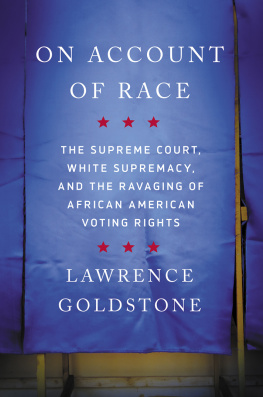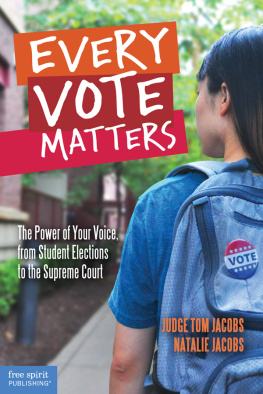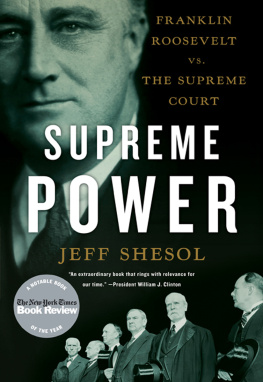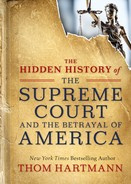Ted Cruz - One Vote Away: How a Single Supreme Court Seat Can Change History
Here you can read online Ted Cruz - One Vote Away: How a Single Supreme Court Seat Can Change History full text of the book (entire story) in english for free. Download pdf and epub, get meaning, cover and reviews about this ebook. year: 2020, publisher: Regnery Publishing, genre: Politics. Description of the work, (preface) as well as reviews are available. Best literature library LitArk.com created for fans of good reading and offers a wide selection of genres:
Romance novel
Science fiction
Adventure
Detective
Science
History
Home and family
Prose
Art
Politics
Computer
Non-fiction
Religion
Business
Children
Humor
Choose a favorite category and find really read worthwhile books. Enjoy immersion in the world of imagination, feel the emotions of the characters or learn something new for yourself, make an fascinating discovery.

One Vote Away: How a Single Supreme Court Seat Can Change History: summary, description and annotation
We offer to read an annotation, description, summary or preface (depends on what the author of the book "One Vote Away: How a Single Supreme Court Seat Can Change History" wrote himself). If you haven't found the necessary information about the book — write in the comments, we will try to find it.
Ted Cruz: author's other books
Who wrote One Vote Away: How a Single Supreme Court Seat Can Change History? Find out the surname, the name of the author of the book and a list of all author's works by series.
One Vote Away: How a Single Supreme Court Seat Can Change History — read online for free the complete book (whole text) full work
Below is the text of the book, divided by pages. System saving the place of the last page read, allows you to conveniently read the book "One Vote Away: How a Single Supreme Court Seat Can Change History" online for free, without having to search again every time where you left off. Put a bookmark, and you can go to the page where you finished reading at any time.
Font size:
Interval:
Bookmark:
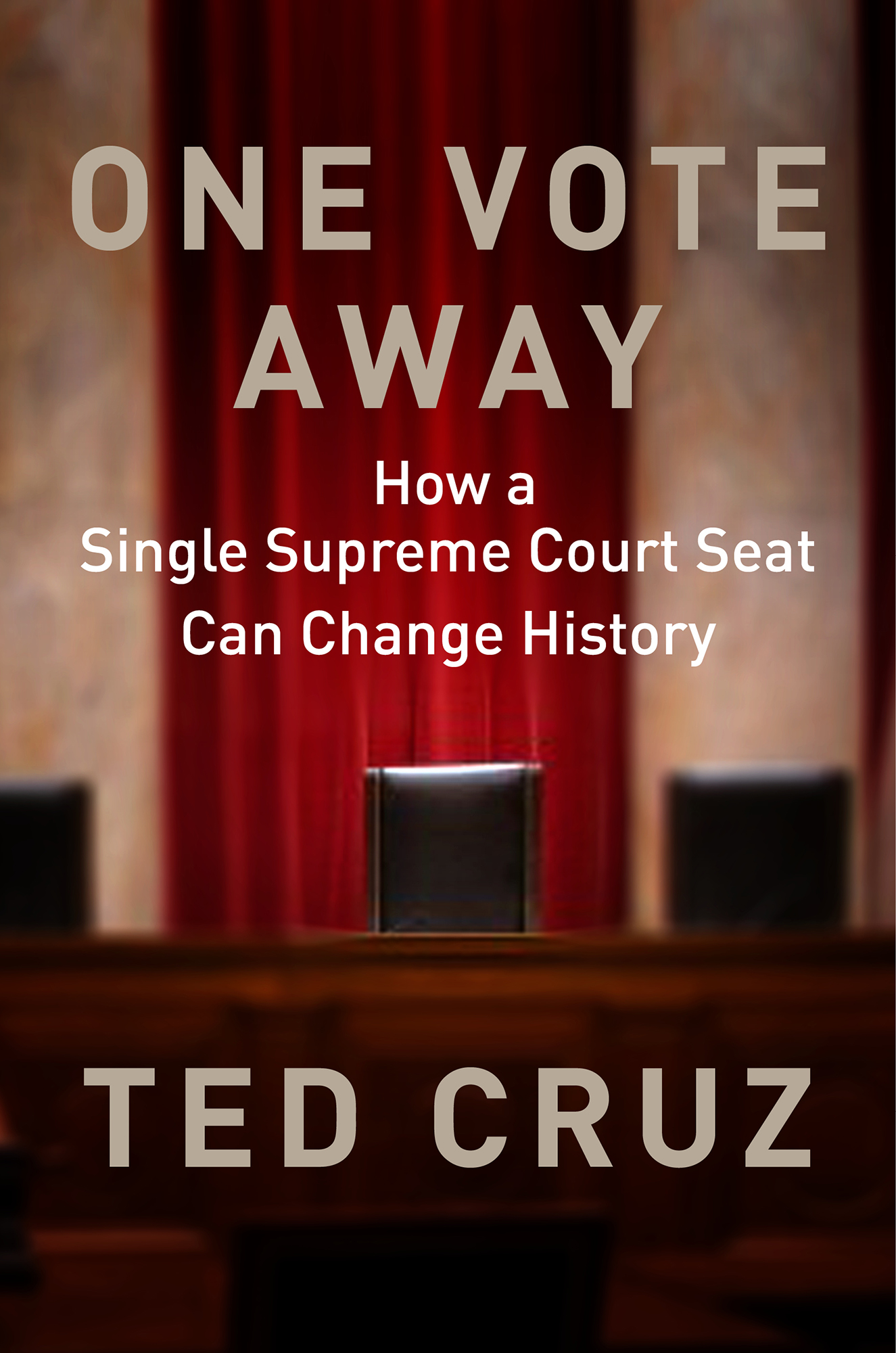

Copyright 2020 by Rafael Edward Cruz
All rights reserved. No part of this publication may be reproduced or transmitted in any form or by any means electronic or mechanical, including photocopy, recording, or any information storage and retrieval system now known or to be invented, without permission in writing from the publisher, except by a reviewer who wishes to quote brief passages in connection with a review written for inclusion in a magazine, newspaper, website, or broadcast.
Regnery is a registered trademark of Salem Communications Holding Corporation
ISBN 978-1-68451-134-1
eISBN 978-1-68451-135-8
Library of Congress Control Number: 2020938901
Published in the United States by
Regnery Publishing
A Division of Salem Media Group
300 New Jersey Ave NW
Washington, DC 20001
www.Regnery.com
Cover design by John Caruso
Cover Photo by Franz JantzenCollection of the Supreme Court of the United States
Books are available in quantity for promotional or premium use. For information on discounts and terms, please visit our website: www.Regnery.com.
This book is dedicated to William Hubbs Rehnquist, the sixteenth Chief Justice of the United States and my friend.
H uddled in a modern, all-glass conference room in Greenville, South Carolina, with afternoon sunshine streaming through every window, a dozen of us were preparing for the presidential debate that evening. Our campaign had just shocked the world by winning Iowa. We placed third in New Hampshire, and South Carolina was the next primary coming up. My debate-prep team consisted of hardened political operatives, policy experts, and seasoned Supreme Court advocates.
Into the room walked Bruce Redden, my body man. Bruce had played football at Oklahoma State; he was the field-goal kicker, the teams second leading scorer whose college nickname was Sunshine because of his (then) long, bleached-blonde hair. Hes charming, utterly trustworthy, and I love him like a brother.
Gesticulating with his right hand, Bruce interrupted our strategy session to ask, You know about the thing?
What thing?
The Scalia thing.
What Scalia thing?? I replied, puzzled.
He died, Bruce answered.
What?!?
That morning, February 13, 2016, the great Antonin Scalia was found dead in his sleep at the Cibolo Creek Ranch hunting lodge near Marfa, Texas. After nearly thirty years on the Court, after ushering in a profound restoration in judicial fidelity to the Constitution and becoming one of the greatest justices in the history of our Nation, Justice Scalia had moved on to meet the Good Lord. The news was not yet public. Nobody knew.
But the local Texas sheriff, whose office had discovered the body, called me and my fellow Texas senator, John Cornyn, to let us both know what had happened. The sheriff got Bruce on his cellphone, and Bruce had just informed me.
Immediately, that became the sole topic of our debate-prep session. President Obama, of course, would try to rush through a replacement in the waning months of his presidency. Replacing Scalia with a liberal would flip the Court and create a five-justice left-wing majority that would produce lasting, fundamental damage to our constitutional liberties. And there was a real risk that Republicans in the Senatefar too often faint of heart, worried about press criticismwould roll over and let him.
Together, we drafted a statement calling on the Senate to hold the seat vacant. To let the voters decide. It was an election yearwe were already well into the presidential primariesand for the past eighty years, no Senate had confirmed a Supreme Court vacancy that had occurred in a presidential election year. We should not be the first.
As soon as the news broke publicly, we released my statement. I sent out a tweet, Justice Scalia was an American hero. We owe it to him, & the Nation, for the Senate to ensure that the next President names his replacement. And, remarkably, in the hours that followed, my statement was echoed by many other Senate leaders, including Judiciary Chairman Chuck Grassley and Majority Leader Mitch McConnell. Later, McConnells former chief of staff told a New York Times reporter that Mitch had rushed his statement out that afternoon because he knew that I would call for keeping the seat vacant in the debate that evening, and he didnt want to be seen as being pressured to follow my lead.
Regardless of how or why, to the astonishment of everybody, Senate Republicans held firm. Every one of us. Instead of letting Obama dictate the outcome, we together argued that the 2016 election should be a referendum on what type of nominee should replace Justice Scalia. We the People should decide.
That vacancy became a centralperhaps the decidingissue in the 2016 presidential campaign. For many Americans, myself included, it was the single most important reason we voted for Donald Trump over Hillary Clinton.
This book is about the Supreme Court. Its about the critical cases before the Court and the imperative for us to defend our constitutional liberties. But to understand how central the Court was to my own decision-making in 2016, this introduction will take a brief detour through the tumultuous months immediately following my presidential campaign.
I ended my presidential campaign on May 3, 2016. At that point, our campaign had defied all expectations. When we entered the racein a crowded, diverse, and talented field of seventeen different Republicansthe media immediately dismissed me as having no chance whatsoever. Instead, we went on to earn nearly 8 million votes and win 12 states; our campaign amassed over 326,000 volunteers, and we raised over $92 million, the most raised in the history of Republican presidential primariesmore than Bush, McCain, or Romneyfrom over 1.8 million contributions. Other than Trump and myself, no other Republican won more than a single state. (Kasich won Ohio, and Rubio won Minnesota; Trump and I won every other state.)
There was a time when it looked like we were going to win. In March and April of 2016, we had a three-week period where I won five consecutive primaries, all by double-digit margins. We won Utah, Colorado, North Dakota, Wyoming, and Wisconsin, each one right after the other. But then the phenomenon that is Donald Trump took over. The mainstream media, which claim to hate the man, would only run stories about Trump, around the clock. Each of our primary victories was largely ignoredthe media basically pretended they didnt happenand altogether the media gave Trump $3 billion in free media coverage. That was, and is, utterly unprecedented in the history of presidential politics.
And it became too much to overcome. Throughout 2016, whenever primary voters actually heard our message, we won, over and over again. But then the tsunami of free media coverage drowned everything else out, and we could no longer be heard. The only events that consistently broke through the media fire wall were debates, and the GOP stopped holding debates on March 10 (while the field was still crowded). Therefore, during the two months when it was basically a two-man race, Trump and I never had even a single one-on-one debate. Even though the media made millions on every debate, they didnt care about making money on more debates; they had decided they wanted Trump to be the nominee because many of them cynically believed hed be the easiest for Hillary to beat. (It is rich irony that many of these same media figures now incessantly bemoan the Trump presidency, given that their deliberate actions played a decisive role in his election.)
Font size:
Interval:
Bookmark:
Similar books «One Vote Away: How a Single Supreme Court Seat Can Change History»
Look at similar books to One Vote Away: How a Single Supreme Court Seat Can Change History. We have selected literature similar in name and meaning in the hope of providing readers with more options to find new, interesting, not yet read works.
Discussion, reviews of the book One Vote Away: How a Single Supreme Court Seat Can Change History and just readers' own opinions. Leave your comments, write what you think about the work, its meaning or the main characters. Specify what exactly you liked and what you didn't like, and why you think so.

